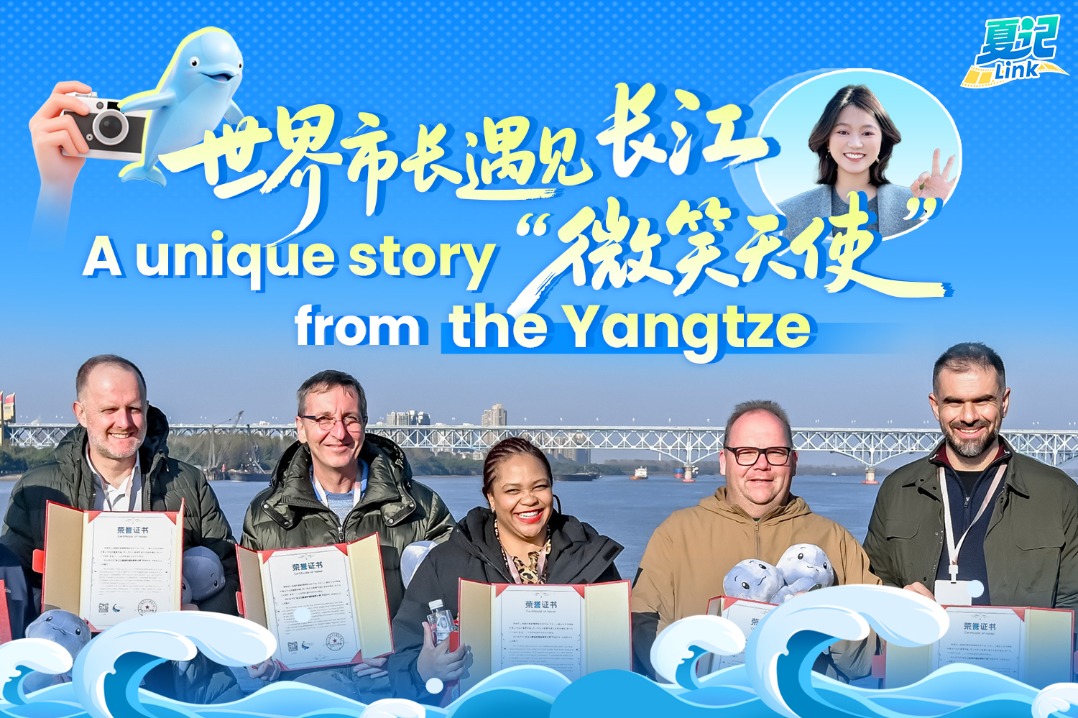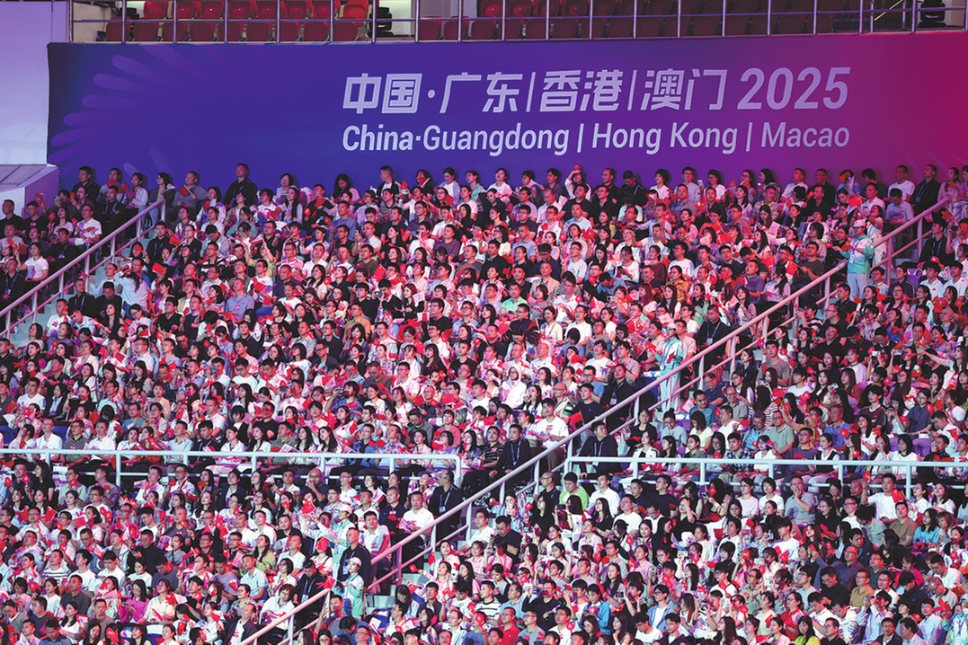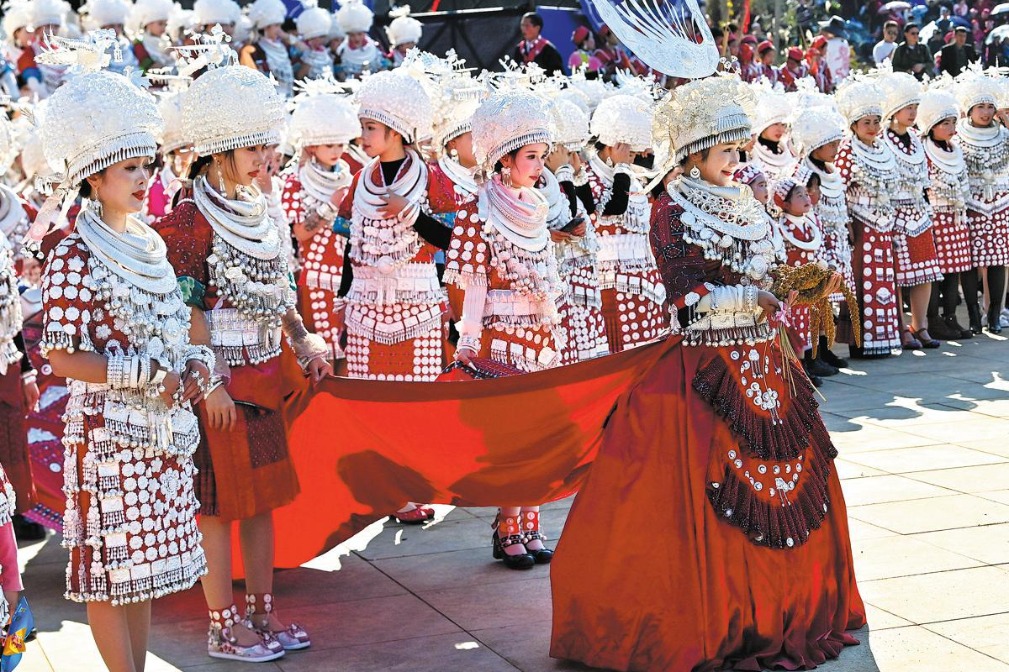Hong Kong universities join national science teacher program
By Stephy Zhang in Hong Kong | China Daily | Updated: 2024-08-22 09:18
Experts believe that the inclusion of two Hong Kong universities in a national program focused on cultivating science teachers will enhance the special administrative region's capacity to nurture innovative technological talent and also ease the path for its students who are aspiring to become teachers on the Chinese mainland.
The Ministry of Education announced on Tuesday that the University of Hong Kong and the Chinese University of Hong Kong had been selected as pilot universities for a new national program to train science research graduates from the country's top tertiary education institutions to teach in secondary and primary schools.
It's the first time that Hong Kong universities have been included in the program, which started last year.
In addition to the two Hong Kong institutions, 11 leading universities on the mainland, including Shandong University, the Harbin Institute of Technology and Capital Normal University, were also selected as pilot universities for the program's second phase, which is due to begin next month.
The second phase aims to develop a distinctive curriculum system, including courses concerning artificial intelligence, interdisciplinary studies and science, technology, engineering and mathematics education.
The first batch of pilot universities covered 30 prestigious mainland universities such as Peking University, Tsinghua University, Fudan University and Shanghai Jiao Tong University.
The ministry pledged support on Tuesday for cross-school learning and exchanges among mainland and Hong Kong graduate students joining the program. It will also help mainland graduate students in the program join teacher training courses in Hong Kong.
Mainland students will be encouraged to remain in Hong Kong to teach after completing their studies, while HKU and CUHK graduates under the program will be allowed to teach in mainland education institutions without having to take examinations.
According to the Hong Kong Special Administrative Region's Education Bureau, mainland students pursuing a diploma in teaching in Hong Kong under the national program are expected to be granted locally recognized teaching qualifications if they meet the requirements and have completed internships.
HKU and CUHK will select suitable students based on their qualifications, with the first batch of students expected to enroll in the program in the 2025-26 academic year.
CUHK's Faculty of Education and its campus in Shenzhen, Guangdong province, will collaborate in offering a two-year master's degree course specifically designed for the program.
Applications are expected to be accepted as early as the end of this year.
Students will attend classes on the CUHK main campus in Hong Kong and its Shenzhen campus. They will also do teaching internships at mainland schools in Shenzhen and other cities in Guangdong.
Hong Kong lawmaker Chu Kwok-keung, who represents the education sector, said the program will enhance academic exchanges between the mainland and Hong Kong, facilitating the sharing of successful educational practices for the benefit of students.
Chu said that STEM education in Hong Kong lacks sufficient teacher training and support, with educators needing to enhance their pedagogical methods and subject knowledge.
With the mainland rapidly advancing in areas such as artificial intelligence and robotics, and Hong Kong excelling in fostering an international perspective and catering to varied education needs, Chu said he sees opportunities for mutual learning and collaboration.
Hong Kong Federation of Education Workers Chairman Wong Kam-leung said the teaching of basic science knowledge in primary schools is weak in Hong Kong, and many schools place more emphasis on humanities subjects.
At present, science-related content in Hong Kong primary schools is covered under general studies, typically taught part-time by English and humanities teachers who lack specialized expertise.
Wong said that if the program can cultivate more teachers with backgrounds in innovation, technology and artificial intelligence, it will help establish science subjects in Hong Kong's primary schools and promote the development of related courses.
He said the teacher cultivation program is also attractive for Hong Kong students as it allows them to teach in mainland cities without taking qualification exams.
Given the current issue of insufficient student enrollment in Hong Kong, seeking broader development prospects in mainland cities in the Guangdong-Hong Kong-Macao Greater Bay Area is appealing to young education professionals in Hong Kong, he said.
To support them in advancing their careers on the mainland, Wong encouraged the Hong Kong Special Administrative Region government to provide additional assistance, such as acknowledging and certifying their teaching experience on the mainland upon their return to Hong Kong.
Associate Vice-President of Lingnan University Lau Chi-pang said that if Hong Kong students can have teachers from different backgrounds starting from primary school, including high-quality mainland teachers trained in the program, it will help them adapt to a diversified teaching environment and cultivate open minds.
Lau said other Hong Kong universities may also seek to participate if the program proves successful, adding that Lingnan University intends to apply for involvement in the program.
stephyzhang@chinadailyhk.com
























